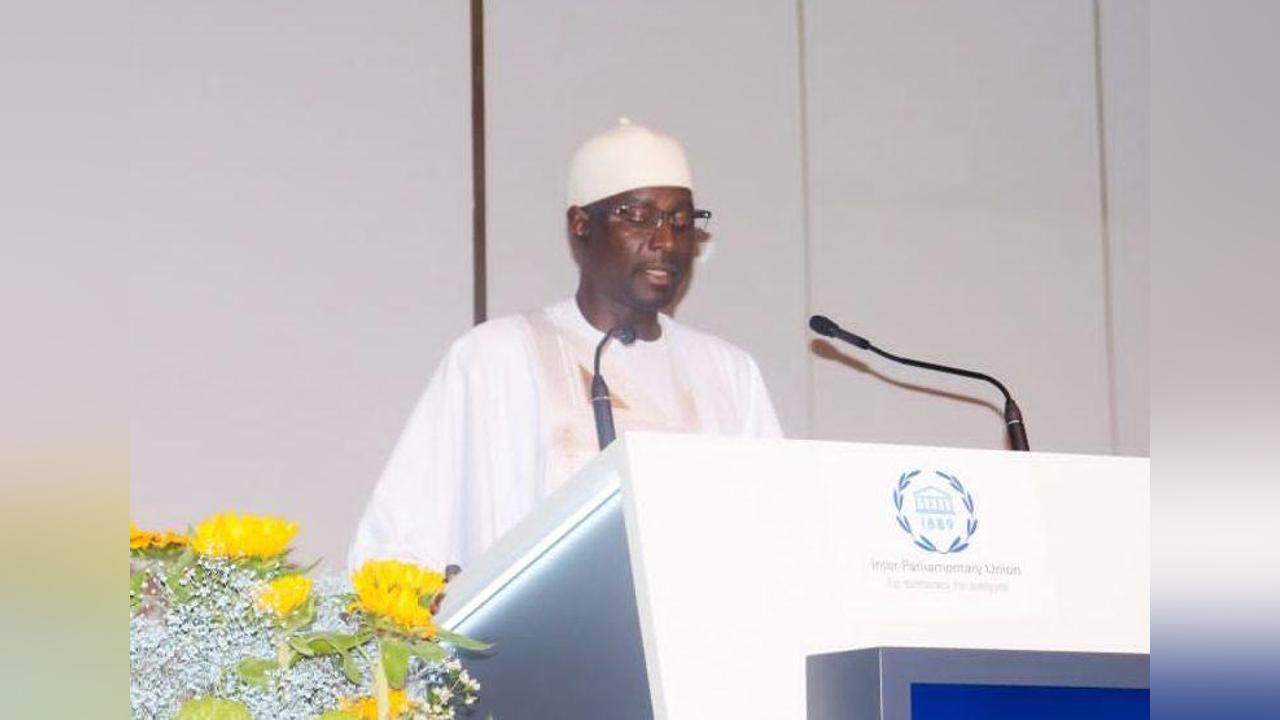Africa-Press – Gambia. It is with profound honour that I address this distinguished assembly to report on the Parliamentary Event held on 24 September, during the High-Level Week of the 80th Session of the United Nations General Assembly in New York.
This annual parliamentary dialogue has become a vital platform for legislators across the world to exchange perspectives on global priorities, and to reaffirm our collective duty in advancing democratic governance and human rights through parliamentary action.
This year’s event, held under the theme “Beijing +30: Parliaments Leading the Way,” centred on a defining question of our time — how far we have come, and how far we still must go, in achieving gender equality and women’s empowerment.
The gathering brought together 50 participants, including 27 Members of Parliament from 17 countries, representing every region of the world, including Burkina Faso, Chile, Ecuador, France, Gambia, Ghana, Greece, Madagascar, Mexico, Pakistan, Russian Federation, Sierra Leone, Serbia, Sweden, Tonga, Trinidad and Tobago, United Arab Emirates. It was a powerful reminder that while our contexts may differ, our aspiration for equality is universal.
I had the privilege of sharing the podium with distinguished colleagues — Ms. Cynthia López Castro, President of the Bureau of Women Parliamentarians; Lord Fakafanua, Speaker of the Parliament of Tonga; Mr. Martin Chungong, Secretary General of the IPU; and Ms. Nahla Haider, Chairperson of the Committee on the Elimination of Discrimination against Women. Together, we reflected on the journey that began in Beijing thirty years ago — a journey defined by courage, progress, and, yes, continuing struggle.
Reflecting on the journey that started in Beijing 30 years ago, the meeting took a close look at progress, as well as setbacks, on women’s participation in politics and in leadership positions.
We were reminded of the lesson from recent history that where there is committed leadership, there is a way.
Progress has always been the product of leaders who set out a strategy, who built momentum, and who refused to accept that inequality was inevitable.
In my intervention, I made it clear that silence in the face of discrimination and violence against women is complicity. Women and girls should not have to ask for their rights — those rights are intrinsic to their humanity. The struggle for equality cannot be won without men standing shoulder to shoulder with women. And as parliamentarians, we must ensure that history remembers us not as bystanders, but as champions who used the power of our voices and our votes to protect the most vulnerable.
Distinguished Colleagues,
As we mark thirty years since the Beijing Declaration, our task is not merely to commemorate, but to renew our resolve. The commitments of Beijing must now be translated into tangible progress in our parliaments, our budgets, and our leadership cultures.
Let us therefore reaffirm, as representatives of the people, that gender equality is not a privilege to be granted — it is a right to be guaranteed. And let us ensure that this right is protected, promoted, and practised in every corner of our societies.
The time for rhetoric has passed; the time for action is now.
Thank you for your attention.
For More News And Analysis About Gambia Follow Africa-Press






